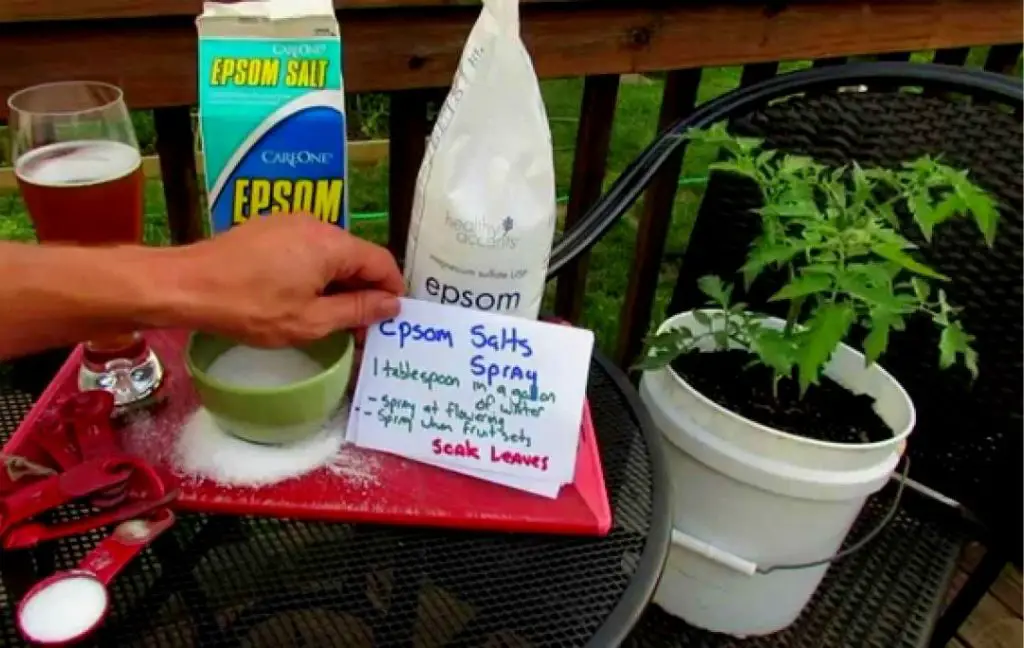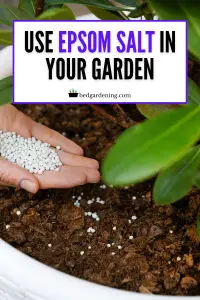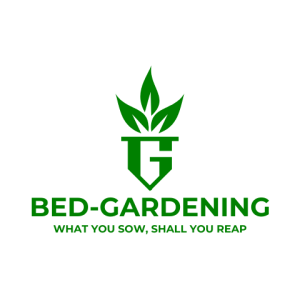Epsom salt is one of the many naturally occurring mineral salts, a mixture of magnesium and sulfate. It contains 10% magnesium and 13% sulfur to meet the nutritional needs of plants.

Magnesium from both compounds plays an important role in plants’ health. It also enables plants to absorb nitrogen and phosphorus and other nutrients. It also helps the plants to flourish. The following are some of the other benefits of Epsom salt for plants:
Maintains Nutrients Level:
Repeated cultivation of plants in the soil depletes the soil’s nutrients. Due to this, new plants do not get full nutrients and they become weak and then infected.
Use Epsom salt in it to restore the soil nutrients. Magnesium in it helps plants to grow by giving them nutrients.
Make Plants Greener:
Chlorophyll is a compound that is responsible for photosynthesis in plants. The photosynthesis process keeps the plant green. And quickly produces flowers and fruits.
Magnesium in Epsom salts accelerates the formation of chlorophyll in plants. Accurate and proper use of Epsom salt protects plants from drying out all year round. And increases their greenery.
As Fertilizer:
N-P-K are the most important compounds for plants. These compounds play a key role in plant growth. Epsom salts contain micronutrients, which provide these compounds to plants.
Therefore, Epsom salt acts as a fertilizer for some plants. But some plants need more fertilizer. Also, give them fertilizer along with Epsom salt. So that they could easily grow.
Acidic Soil:
Magnesium deficiency increases soil acidity. In acidic soil, plants do not survive and soon die. Epsom salt increases magnesium levels and also reduces soil acidity. Excessive and direct use of Epsom salt can be harmful. So you should mix Epsom salt with water and spray it on the soil of plants.
Protect From Pests:
Every plant is attacked by insects. If left unmanaged they can damage the plant. Epsom salt protects against many kinds of pests. This is important in killing insects like wool and slugs.
Mix the Epsom salt in the water and spray on plants. Spray Epsom Salt once a week. Because too much use of it directly on leaves of plants can be harmful to them.
Helps To Form Roots:
Plants need more nutrients when they go through the transplant stage so that they can strengthen their roots. If the soil is deficient in nutrients then the plants will die.
That’s why you should add a teaspoon of Epsom salt to the soil before transplanting the plants. Epsom salt enhances nutrients and helps plants to produce roots.
Accelerate The Germination Process:
Epsom salt has many micronutrients that help plants grow and spread easily. Before the planting adds the Epsom salt to the soil then sow the seed. The amount of magnesium in Epsom Salt helps the seeds to germinate faster. Remember to keep the amount of Epsom salt for each plant seed according to its instructions.
Increase The Taste Of The Different Plants’ Fruits:
Epsom salt also plays an important role in maintaining the flavor of plant fruits. Make sure to use Epsom salt during the growing season of each plant. You can also use Epsom Salt Direct 2 to 3 times a year.
In addition, the use of Epsom salt on the leaves of pepper or tomato plants helps them to maintain their color and flavor.
Use Of The Epsom Salt On Indoor Plants:
Epsom salt is an important element for indoor plants for a better growth rate. Before planting your houseplants, put Epsom Salt in the soil, then dissolve it in water and spray it daily. The amount of Epsom salt should be according to the growth of plants.
Maintains The pH Of The Soil:
Each plant works at its proper pH. Epsom salts help to maintain soil pH. Other fertilizers and compost in the soil can increase or decrease the soil pH. But the Epsom salt maintains the acidity levels of the soil by decreasing acidity.
If your soil pH is higher than normal rage do not use Epsom salt. And protects plants from rot.
Provide Micronutrients:
Epsom salt has 2 micronutrients that are very important for plant health and growth. Those are magnesium and Sulphur. Magnesium is the major compound of Epsom salt. And they play an important role in the growth of plants.
Keep Reading
- A Guide For Dummies To Grow Grapes From Seeds
- 20 Most Exotic House Plants
- Easy Vegetables To Grow For Kids And Beginners

Maintains The Amount Of Magnesium:
Magnesium is the main compound of chlorophyll. Magnesium deficiency causes the leaves of plants to turn yellow. Chlorophyll does not work properly and plants begin to wither. So you should add Epsom salt to the soil so that the plant gets enough magnesium and it works properly.
While there are advantages to Epsom Salt, there are also disadvantages. Too much of it can ruin an entire crop. So be careful when you use them. Use a specific amount of Epsom salt as needed by the plants.
